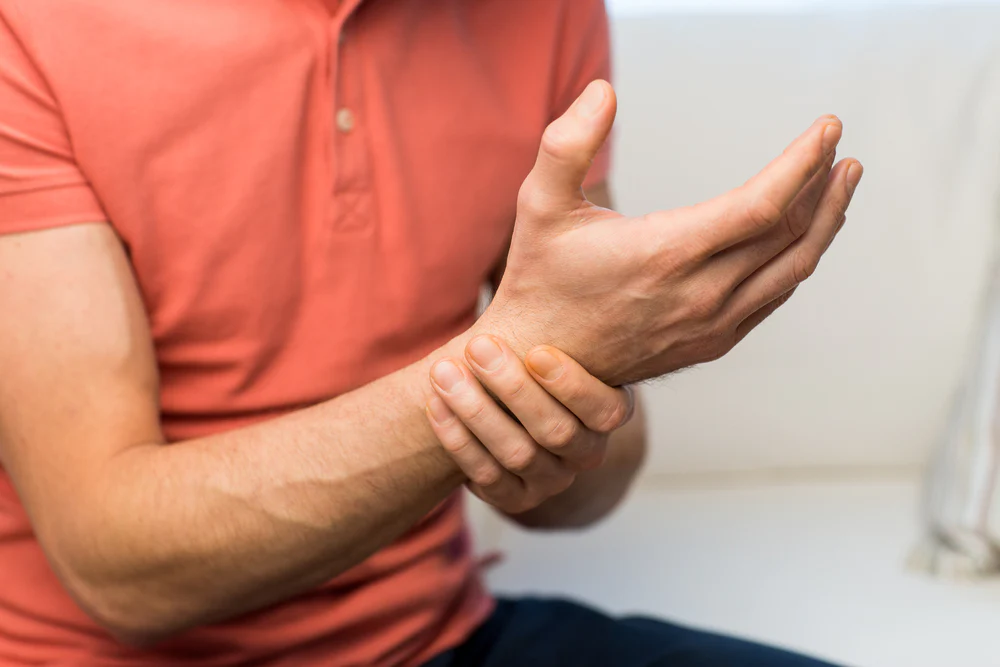Sleep Disorders and Conditions
Twitching When Sleeping
Have you ever woken up suddenly in the middle of the night, feeling like you've just been startled by something? This sudden awakening is often accompanied by a physical twitch or jerk, which can be quite alarming. This phenomenon is known as a hypnic jerk, and it's quite common. In this blog, we'll explore why hypnic jerks occur and what you can do to reduce their frequency.
What is a hypnic jerk?
A hypnic jerk is an involuntary muscle twitch that occurs as you're falling asleep. It's also known as a sleep start or a hypnagogic jerk. Hypnic jerks can be quite mild, or they can be more intense and cause you to wake up suddenly. They often involve a sudden contraction of the muscles in your arms, legs, or torso.
What do hypnic jerks occur?
The exact cause of hypnic jerks is not known, but there are several theories. One theory is that hypnic jerks are a natural part of the sleep process. As your body begins to relax and prepare for sleep, your brain may misinterpret this relaxation as a sign that you're falling and send a signal to your muscles to jerk you awake.
Another theory is that hypnic jerks are the result of an overactive nervous system. When your nervous system is overactive, it can send signals to your muscles to contract involuntarily, resulting in a hypnic jerk.
Finally, some experts believe that hypnic jerks are simply a byproduct of the modern sleep environment. We live in a world that is filled with noise and distractions, and our brains are constantly processing information. As a result, when we try to sleep, our brains may not be able to fully relax, and this may lead to hypnic jerks.
How can you reduce hypnic jerks?
While hypnic jerks are generally harmless, they can be quite disruptive to your sleep. If you're experiencing hypnic jerks on a regular basis, there are several things you can do to reduce their frequency:
Reduce Your Stress Levels: Stress and anxiety can contribute to an overactive nervous system, which can increase the frequency of hypnic jerks. Try to reduce your stress levels by practicing relaxation techniques such as meditation or deep breathing exercises.
Avoid Stimulants Before Bed: Caffeine, alcohol, and nicotine can all interfere with your ability to fall asleep and increase the likelihood of hypnic jerks. Avoid these substances in the hours leading up to bedtime.
Create a Relaxing Sleep Environment: Creating a relaxing sleep environment can help your brain to switch off and prepare for sleep. Keep your bedroom cool and dark, and consider using blackout curtains or earplugs if you're sensitive to light or noise.
Stick to a Regular Sleep Schedule: Going to bed and waking up at the same time every day can help to regulate your body's natural sleep-wake cycle. This can reduce the frequency of hypnic jerks and improve the overall quality of your sleep.
Talk to Your Doctor: If your hypnic jerks are particularly severe or are affecting your quality of life, talk to your doctor. They may be able to recommend treatments or medications that can help to reduce the frequency of your hypnic jerks.
Hypnic jerks are a common occurrence that can be quite disruptive to your sleep. While the exact cause of hypnic jerks is not known, there are several theories, including an overactive nervous system and an overly stimulating sleep environment. By reducing your stress levels, avoiding stimulants before bed, creating a relaxing sleep environment, sticking to a regular sleep schedule, and talking to your doctor, you can reduce the frequency of your hypnic jerks and improve the overall quality of your sleep. Remember that it's important to prioritize your sleep, as it plays a crucial role in your overall health and wellbeing. If you're experiencing hypnic jerks on a regular basis, take the time to explore different techniques and strategies that can help you to get a good night's sleep.
In addition to reducing the frequency of hypnic jerks, there are other steps you can take to improve the quality of your sleep. For example, you may want to consider investing in a comfortable mattress and pillows, practicing good sleep hygiene, and avoiding using electronic devices in the bedroom.
Ultimately, the key to reducing the frequency of hypnic jerks is to create a relaxing sleep environment and prioritize your sleep. By making sleep a priority, you can improve your overall health and wellbeing and wake up feeling refreshed and energized each morning.
Sleep Disorders and Conditions
Sleepless in Psychiatry: Unraveling the Role of Sleep in Neuropsychiatric Illnesses
Sleep Disorders and Conditions
When Sleep Disorders Clock In: Insomnia’s Impact on Productivity of Young Adults
Sleep Disorders and Conditions
Why Does My Body Twitch When I Sleep
Sleep Disorders and Conditions
Hypnic Jerk: Why Do I Twitch in My Sleep?
Sleep Disorders and Conditions
When your Arm Falls Asleep: Causes and Treatments
Sleep Disorders and Conditions







